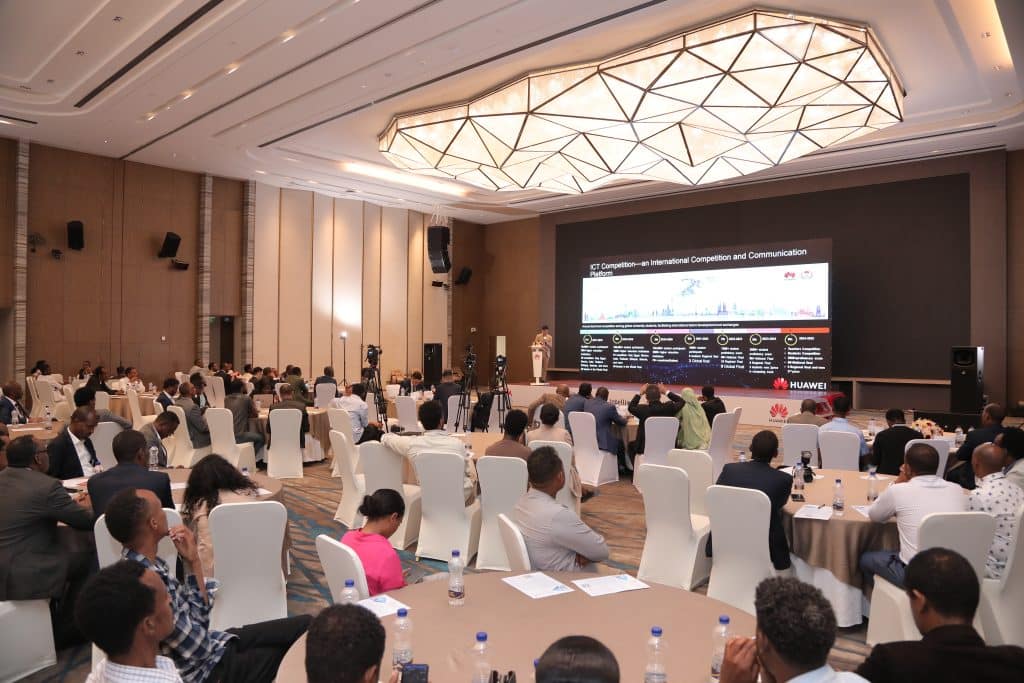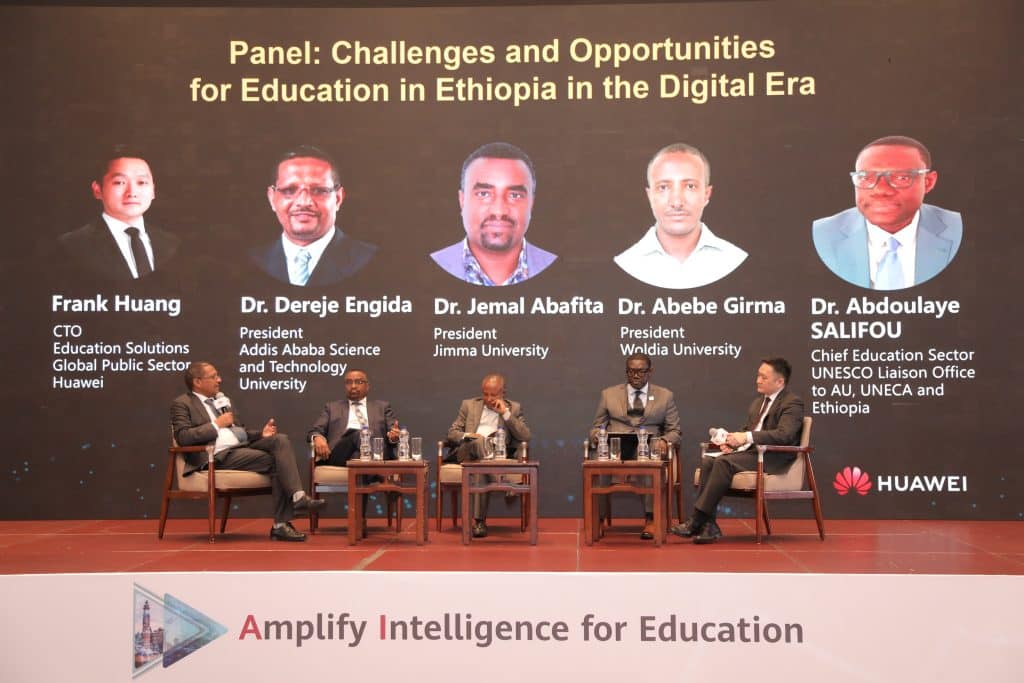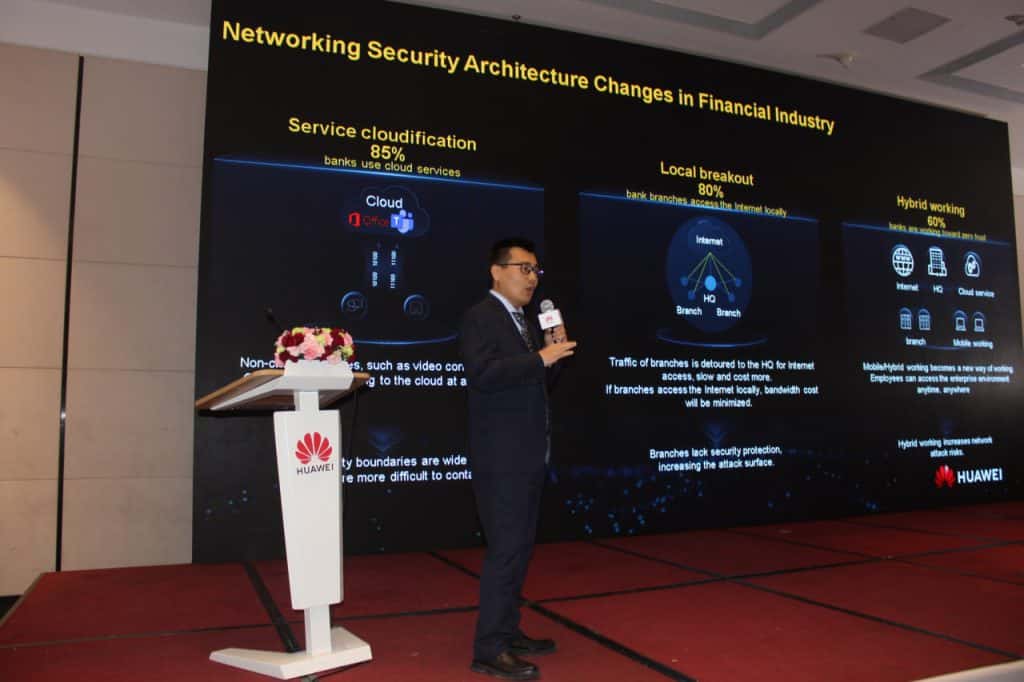
Addis Ababa, April 22, 2025 – Huawei convenes leading education experts, government officials, university presidents, and international organizations in Addis Ababa for the Huawei Education Summit 2025, a high-level gathering that explores how emerging technologies—particularly Artificial Intelligence (AI)—can transform education systems in Africa and globally. This year’s summit highlights Huawei’s commitment to fostering Intelligent, innovative, and sustainable education ecosystems through digital solutions.
The summit opens with a focus on insights from global education leaders, who examine key trends in education digitalization and showcase best practices for cultivating digital talent. As education systems around the world increasingly embrace digital transformation, Huawei is introducing its all-scenario smart education solutions designed to empower institutions with the tools needed for personalized learning, efficient management, and enhanced teaching outcomes. A central theme of this year’s summit is the integration of AI in classrooms—from AI-generated lesson plans to AI-assisted teaching techniques and real-time adaptive learning platforms. These innovations are helping to shape a future where education is more accessible, student-centered, and data-driven.

Huawei also emphasizes the importance of early AI talent development by advocating for the inclusion of AI-related content in foundational and secondary education curricula. The company sees AI as a cross-cutting discipline and is supporting interdisciplinary learning models that bring together coding, data literacy, climate awareness, and critical thinking to prepare students for the evolving demands of the workforce.
The summit features a special address from representatives of UNESCO, who present findings and perspectives on the urgent need for educational transformation in Africa. According to UNESCO, the continent faces multiple, intersecting challenges—including limited public funding due to debt constraints, the growing impact of climate change, and a persistent digital divide. However, these challenges also present opportunities. UNESCO is calling for African governments and private sector partners to work together in integrating climate education into formal curricula and investing in green, tech-driven educational models that meet the needs of the new green economy.
Another highlight of the summit is the announcement of Huawei’s expanded investment in its global ICT Academy initiative. Currently partnered with more than 2,200 educational institutions worldwide, Huawei’s ICT Academy trains over 200,000 students each year in ICT, networking, and cloud technologies. By 2026, the company plans to scale this initiative to reach more than 7,000 institutions and train over one million students annually. This expansion will include a strong focus on Africa, through initiatives such as the Huawei-UNESCO Open School, ICT Competitions, the Handshaking Forum, Seeds for the Future, and DigiTruck Ethiopia—a mobile digital classroom that brings connectivity and digital skills training to underserved rural communities.
In addition to expert panels and presentations, the summit hosts a roundtable discussion with university presidents from across Ethiopia. This closed-door session aims to examine the structural and resource gaps that currently hinder Ethiopia’s ability to fully leverage AI in higher education. Participants reflect on how to build strong local capacity for AI and ICT talent development, while also reimagining lifelong learning to be more inclusive, tech-integrated, and relevant to the country’s economic and social development goals.
Huawei unveils its latest education-focused technology solutions during the summit. These include its Cloud and AI-Powered Education platform, which enables institutions to design intelligent digital learning environments; Digital Smart Campus architecture, which offers an integrated model for managing academic, administrative, and research functions in real-time; and Green Smart Campus technologies, such as modular data centers and solar-powered infrastructure, that support environmentally responsible digital transformation in education.
Speaking at the opening ceremony, Mr. Liu Jifan, CEO of Huawei Ethiopia Office, stressed that Huawei shares the vision of pionners and elites in the education industry in Ethiopia to enable our children to receive a better education. “Digital and intelligent transformation of education is the best acceleration engine, which enables our children to enjoy the cutting-edge technologies of the times. It will also help continuously break down barriers of thought and strengthen digital capabilities to contribute to Ethiopia’s digital and intelligent future.”the spokesperson stated.
The Huawei Education Summit 2025 sets the tone for what could be a transformative year for education policy and practice across Africa. With digital equity and innovation at the heart of the conversation, the summit marks an important step in building a smarter, greener, and more inclusive future for learners and educators alike.

Huawei Launches 2025 Finance Summit in Addis Ababa, Highlighting Africa’s Leap into the Future of Digital Finance
Addis Ababa, Ethiopia – April 23, 2025 – Huawei today inaugurated its 2025 Finance Summit in Addis Ababa, positioning Ethiopia and the broader African continent at the forefront of a rapidly evolving digital finance landscape. The summit brought together regional financial leaders, government representatives, and global technology experts to explore the unprecedented opportunities presented by the digital transformation of financial services. With this event, Huawei not only reaffirmed its commitment to technological innovation but also underlined its role as a strategic co-creator of Africa’s digital financial ecosystem.
The central theme of the summit, “Driving Financial Resilience Transformation in Africa with Digital Technology,” set the tone for a forward-looking discussion on how digital solutions are redefining financial systems in Africa. As the global financial sector experiences a “triple reconstruction”, a fundamental shift in service delivery models, infrastructure architecture, and risk management frameworks, Huawei emphasized that Africa is uniquely positioned to leap ahead. Unlike mature markets weighed down by outdated legacy systems, African nations like Ethiopia have the rare opportunity to adopt cloud-native technologies and open digital ecosystems from the ground up. This structural advantage allows them to build financial systems that are not only agile and inclusive but also future-ready.
During the summit, Huawei shared insights into how its technologies are driving tangible impact in financial markets across Africa. In Ethiopia, for instance, Huawei’s hybrid cloud solutions are already being deployed to support local banks in modernizing their core systems. This shift has resulted in a 30% improvement in transaction processing efficiency and a 20% reduction in operations and maintenance costs. These outcomes demonstrate how digital infrastructure can deliver both speed and cost-effectiveness at scale.
At the summit, Huawei also introduced its all-scenario mobile payment solution tailored for African markets. With support for multiple languages and offline transactions, this solution is designed to address the diverse needs of rural populations, particularly in Ethiopia. The company aims to cover 80% of rural areas with its mobile payment platform by 2026, laying the foundation for more inclusive access to digital financial services.
Moreover, Huawei is addressing the environmental and operational challenges of digital transformation by offering smart, modular data centers that support the financial industry’s various infrastructure needs. These data centers, which range in size and application, are built to be energy-efficient, reliable, and scalable. By incorporating intelligent technologies, Huawei is helping its financial partners in Africa construct the next generation of data centers that are simple, green, smart, and dependable.
Perhaps the most compelling takeaway from the summit is Huawei’s transformation from a traditional technology supplier to a collaborative builder of national digital ecosystems. According to the Summit, the migration to Huawei’s cloud infrastructure enabled the launch of new mobile lending products in just six months—a process that would have otherwise taken two years under conventional systems. This acceleration not only exemplifies the efficiency of Huawei’s digital solutions but also reflects the company’s commitment to co-creating value with its clients.
According to analysts, the 2025 Finance Summit marks a pivotal moment, signaling that Africa is poised to become the next global hotspot for financial technology innovation. With the increasing penetration of 5G, the rapid adoption of smartphones, and a growing appetite for digital services, countries like Ethiopia are well-placed to lead the continent in this transformation. Huawei’s deep local investment and alignment with Ethiopia’s digital ambitions could position the nation as a model for others to follow in building a modern, resilient, and inclusive financial system.
As the summit concludes, one message resonates clearly: the future of finance in Africa is digital, and that future is being built today, with Huawei at the h
